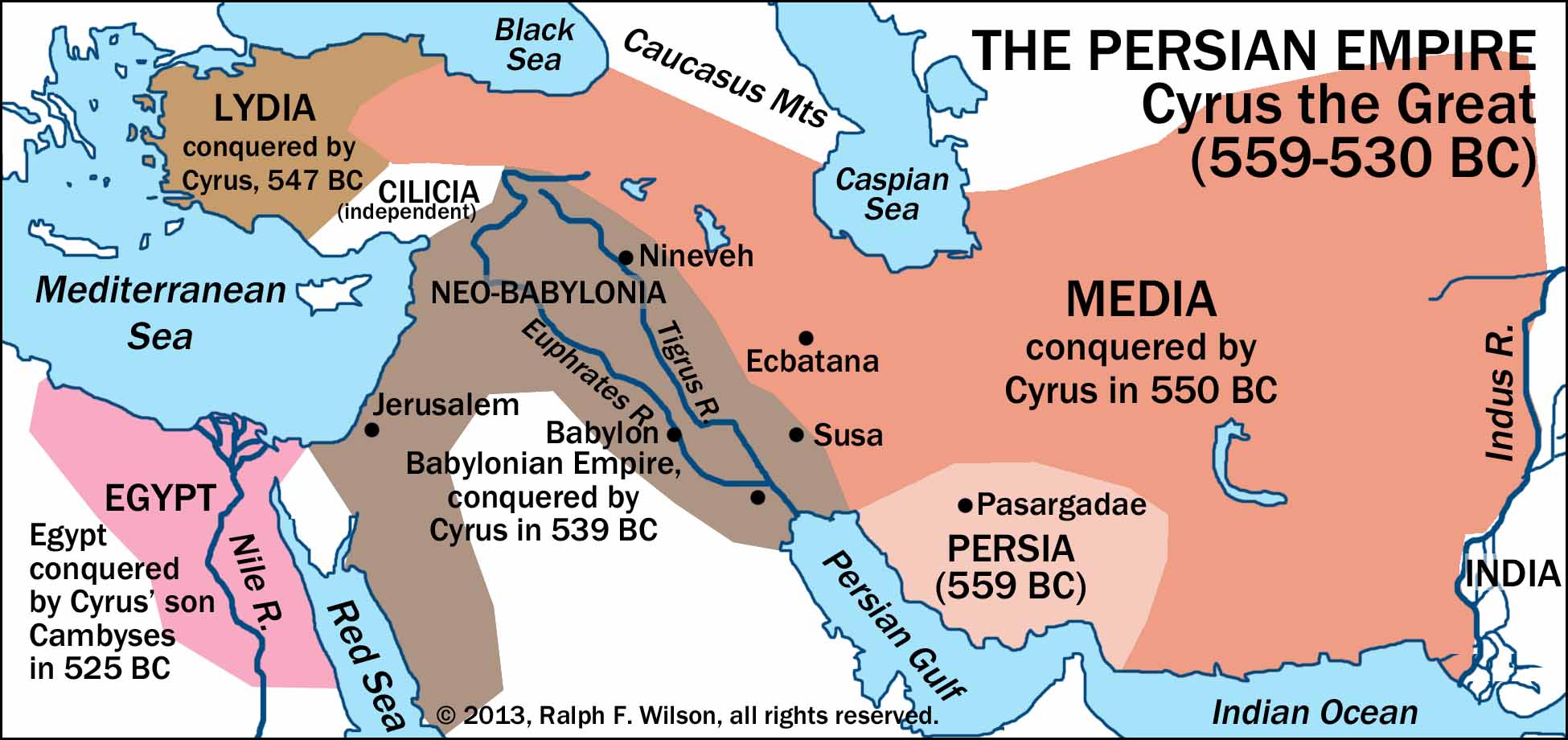Isaiah 41:2 and 25
New American Standard Bible 1995
………. ……………………………… 2 “Who has aroused one from the east Whom He calls in righteousness to His [a]feet? He delivers up nations before him And subdues kings. He makes them like dust with his sword, As the wind-driven chaff with his bow. ………. ………………………………
.....more scripture.....more scripture.... .................................. ..............................................
25 “I have aroused one from the north, and he has come; From the rising of the sun he will call on My name; And he will come upon rulers as upon mortar, Even as the potter treads clay.” ………. ………………………………
Here is an interesting excerpt from ( https://biblehub.com/commentaries/isaiah/41-25.htm ) Barnes' Notes on the Bible
From the north - In Isaiah 41:2, he is said to have been raised up 'from the east.' Both were true. Cyrus was born in Persia, in the country called in the Scriptures 'the east,' but he early went to Media, and came from Media under the direction of his uncle, Cyaxares, when he attacked and subdued Babylon. Media was situated on the north and northeast of Babylon.
I might be making much ado about nothing. However, Barnes' Notes on the Bible’s excerpt above juxtapositions Isaiah 41:2 and 25 in order to deduce that God is “inspiring” Cyrus of Media and Persia to subdue neighboring kingdoms.
I searched the internet, and I found the following map:
( Map Credited Reference: https://www.jesuswalk.com/daniel/app2_medo-persian-empire.htm )
In said map, Persia’s region is sort of located East of Israel, and Media’s region is sort of located North of Israel.
I suppose Barnes' Notes on the Bible’s exegesis proposes an interesting conjoining literary technique.
However, is said Barnes' Notes on the Bible’s exegesis correct? Why isn’t there a verse in Isaiah 41 that just says northeast instead of resorting to this aforementioned conjoining literary technique of “north” and “east”?
